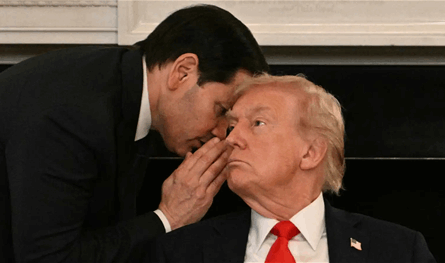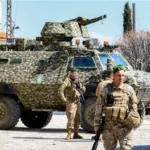
Western diplomatic sources revealed to “Erem News” that Trump’s statement cannot be read in isolation from Washington’s desire to link the Gaza file to its broader balance with Tehran. Instead of viewing Iran as a “threatening actor,” the US administration seeks to transform it into a controllable negotiating figure within a political equation that allows the United States to manage influence instead of direct confrontation.
According to the sources, this proposal is not directed at Tehran only, but rather is a multi-directional message aimed at resetting the regional rhythm after the Gaza agreement, and showing that Washington now prefers flexible diplomatic force over hard confrontation, ensuring the continuation of its influence in the region with less expensive tools.
The sources explain that the Iranian file in Washington is being reformulated as a factor of controlled stability rather than a direct threat, indicating that the Trump administration is working on an approach of “controlling adversaries, not reconciling them,” that is, containing Iranian influence through economic and political tools instead of engaging in an open military clash.
American discourse, according to this approach, adopts vocabulary that is open to double interpretation: whoever wants calm reads it as an invitation to dialogue, and whoever wants power reads it as a veiled warning. The United States realizes that any direct confrontation with Tehran may hinder the calm in Gaza, so it tends to keep tension under control to ensure greater flexibility in managing the regional scene.
American researcher Mike Harper said in his interview with “Erem News” that including Iran in the peace discourse does not mean a radical shift in American doctrine, but rather a calculated adaptation to the new balances created by the Gaza war.
He explained that Washington is not seeking a “grand bargain” as much as it is working to regulate regional noise and prevent the return of chaos, noting that Trump’s speech aims to display dominance through non-confrontational means that balance deterrence and appeasement.
As for the researcher in Middle East affairs, Abdul Majeed Daoud, he considered that Trump’s call has a testing nature, as it presents Tehran with two options: either discipline within the new stability equation, or face accusations of obstructing the diplomatic path. According to Daoud, the United States uses the vocabulary of peace to encapsulate the logic of deterrence, making diplomacy a means of managing the conflict, not ending it. (Erm News)

















